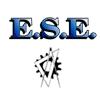Antibacterial Activities of Lactic Acid Bacteria Probiotics Derived from Pig Feces in Thailand
Published: September 19, 2022
Source : W. Sirichokchatchawan 1, P. Pupa 1, W. Niyomthum 1, N. Prapasarakul 1 / 1 Department of Veterinary Microbiology, Faculty of Veterinary Science, Chulalongkorn University, Bangkok, Thailand.
Summary
Keywords: Antibacterial activity, Pig feces, Probiotics.
Introduction:
Probiotic has been used as an alternative for antibiotic replacement that possesses an antibacterial efficacy using in pig industry. Lactic acid bacteria (LAB) are the important probiotic members used worldwide. However, a limitation of probiotic use is mainly caused by host specificity and appropriateness of geographical difference. Besides, the target of probiotic against enteric pathogens should be considered upon epidemiological evidence. However, there was still a lack of antibacterial activity between the local GI pathogen in Thailand and probiotic candidates ensuring their efficacies, in vitro. The purpose of study was to evaluate antibacterial activities of seven strains of LAB isolated from pig feces in Thailand against Enterotoxigenic Escherichia coli (ETEC), Enterohaemorrhagic Escherichia coli (EHEC) and Salmonella Cholerasuis isolated from clinical piglets.
Materials and Methods:
The indicator pathogenic bacteria consisting of 5 EHEC, 5 ETEC, 5 S. Cholerasuis, E. coli ATCC 25922 and S. Thyphimurium ATCC 13311 were added to a 20 ml of 42 ̊°C Mueller-Hinton agar to a final concentration of 105 CFU/ml and poured into Petri dish, then 6 mm-diameter wells were punched into the surface using a sterile borer. Seven LAB strains; 3 Lactobacillus plantarum, 2 Enterococcusfaecium, 1 Pediococcusacidilactici and 1 Pediococcuspentosaceus have been screened using high performance of probiotic characteristics. Cell-free culture supernatants (CFCS) of the selected LAB grown in MRS broth at 37 °C for 48 h were obtained by centrifugation (5,000 rpm, 4 °C, 15 min) and filtered through a 0.22 μm filter. A 50 μl CFCS was measured pH, added to each well of the plates and incubated at 37 °C for 18 h. The antimicrobial activity was determined by diameter of the inhibition zone around the wells.
Results:
All LAB were further characterized by tolerance to low pH and bile environment, and adhesion to cell line from the previous study. CFCS of tested lactobacilli and pediococci strongly presented antimicrobial activity against all pathogenic bacteria by presenting the clear zone. In contrast, no strain of E. faecium presented antimicrobial activity. The selected lactobacilli showed the best antimicrobial activity comparing with the others (P≤0.05). Moreover, we observed antimicrobial activity from supernatants those possessed pH below 4.
Conclusion:
We confirmed the antibacterial efficacy of lactobacilli and pediococci field strains against common cause of diarrhea in piglets, in vitro. According to their properties, the native LAB strains as a good probiotic candidate will be further studied for time kill assay and clinical efficacy, in vivo.
Disclosure of Interest: None Declared.
Published in the proceedings of the International Pig Veterinary Society Congress – IPVS2016. For information on the event, past and future editions, check out https://ipvs2024.com/.
Content from the event:
Related topics:
Mentioned in this news release:
HOKOVIT
Recommend
Comment
Share

Would you like to discuss another topic? Create a new post to engage with experts in the community.








